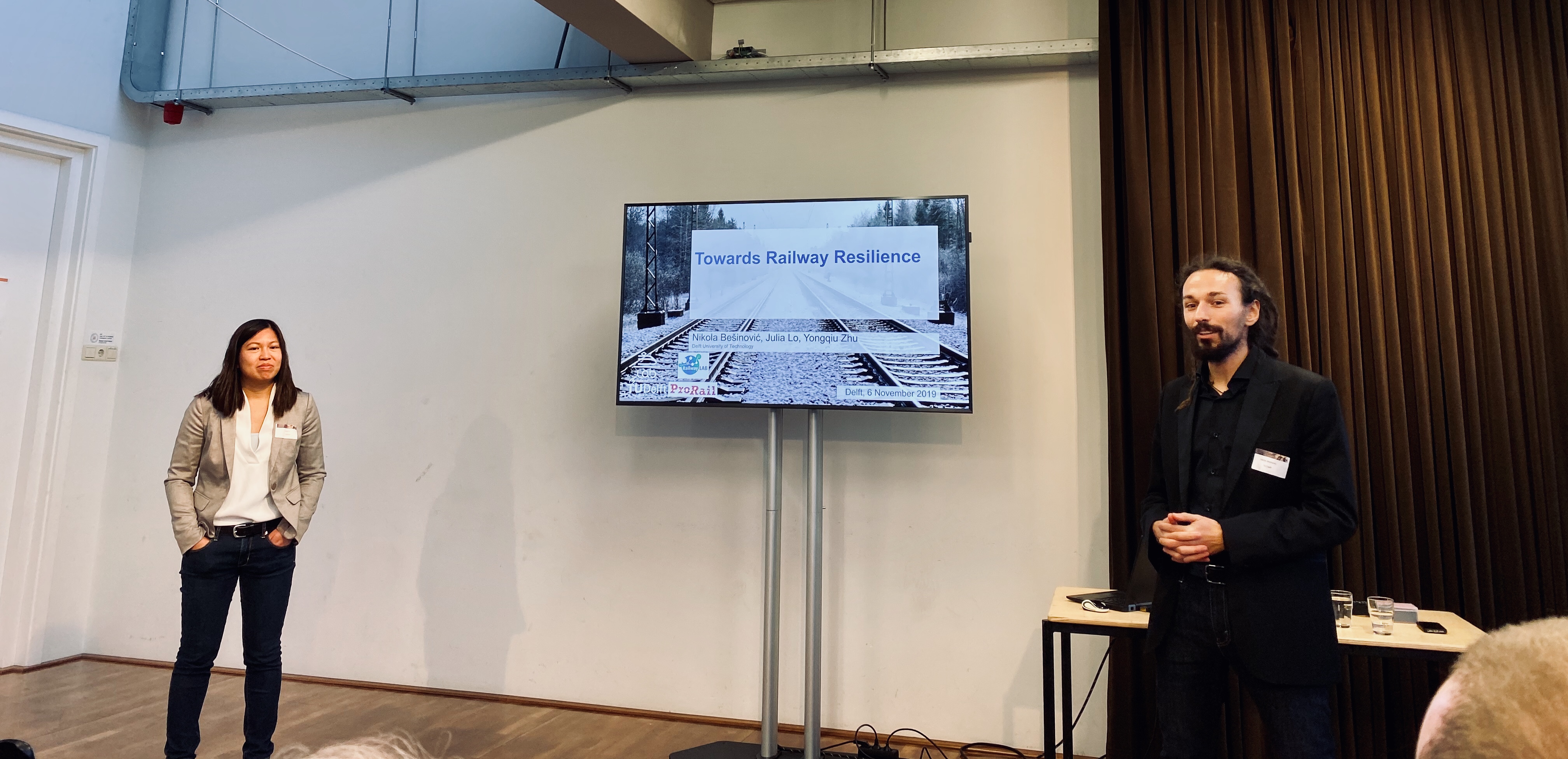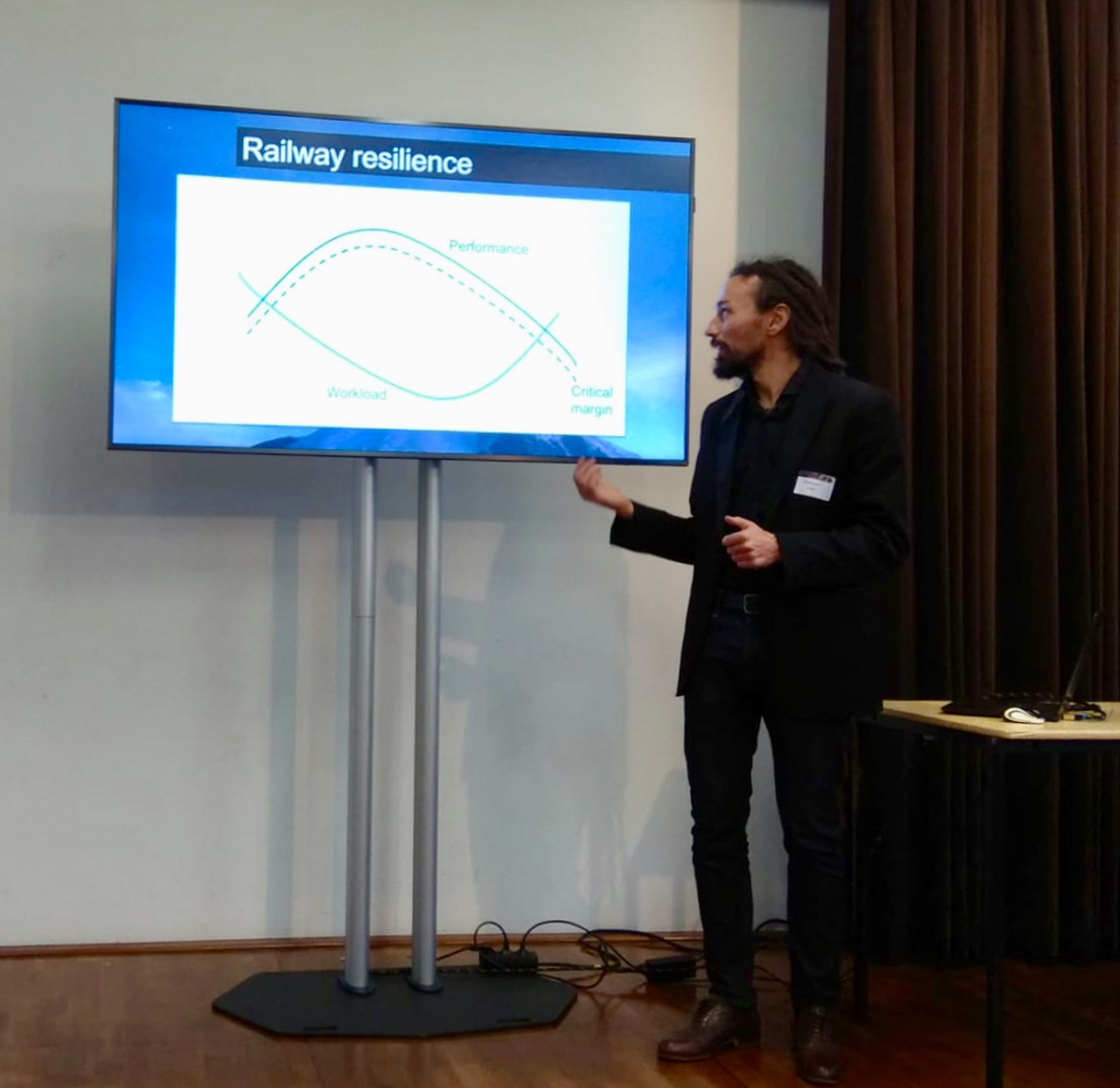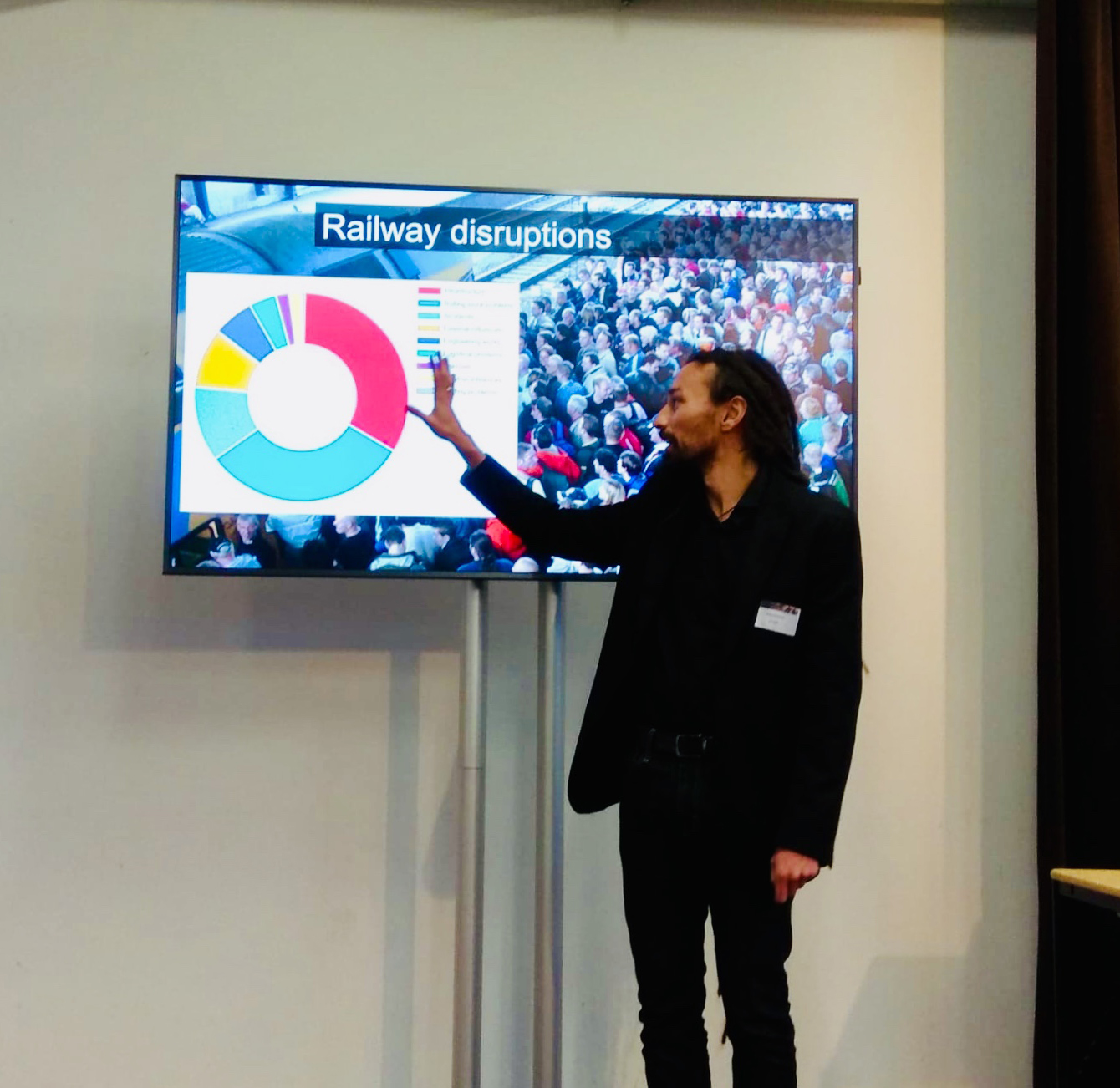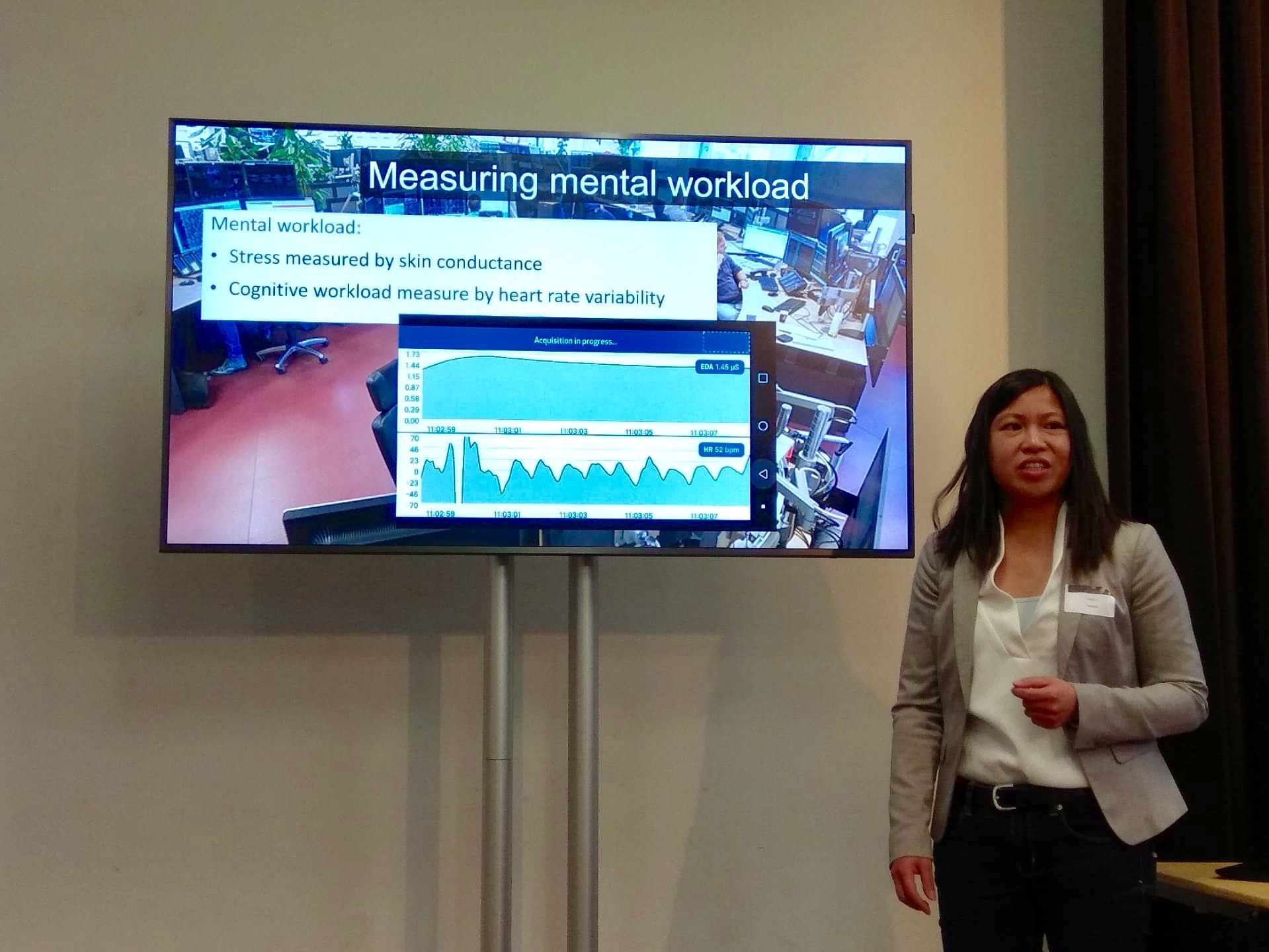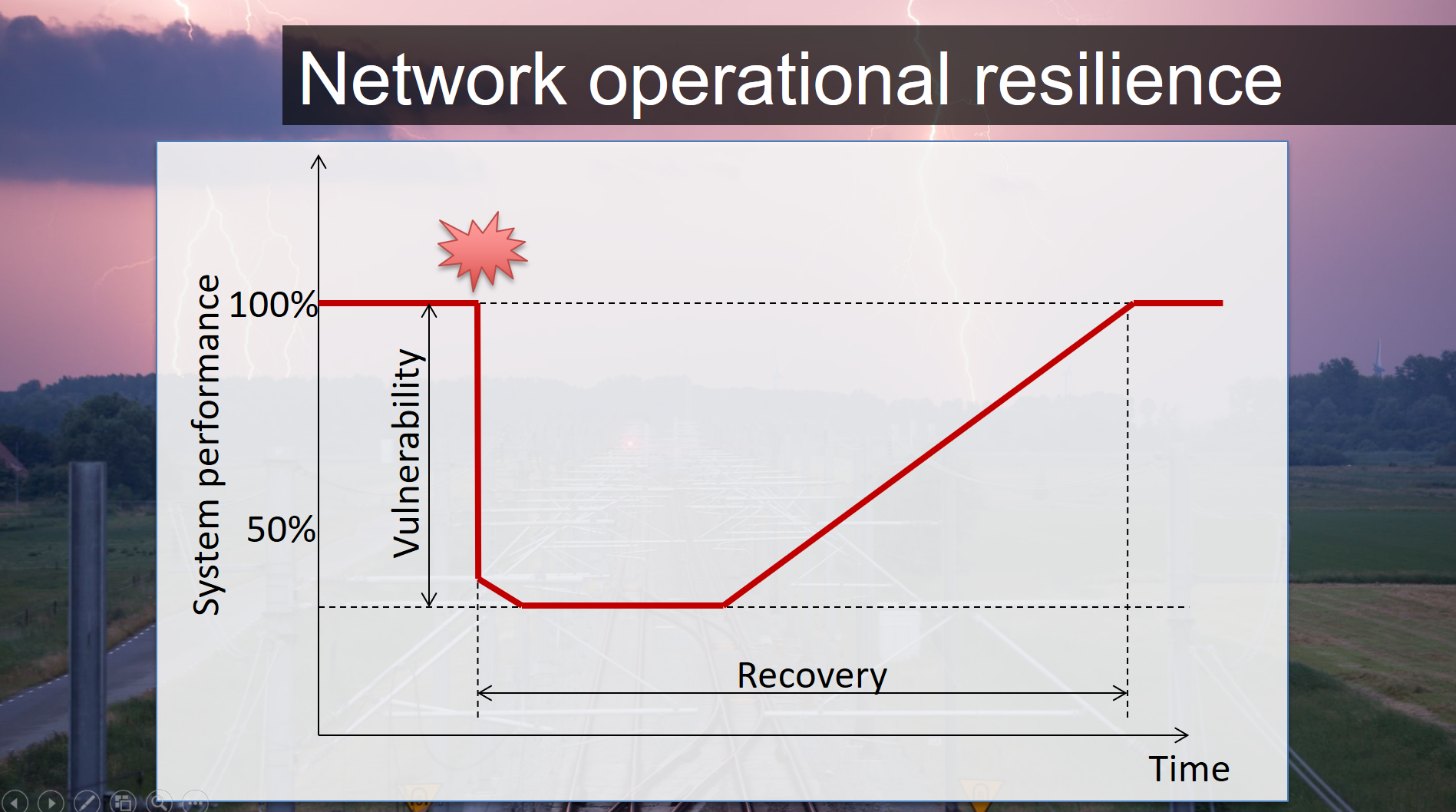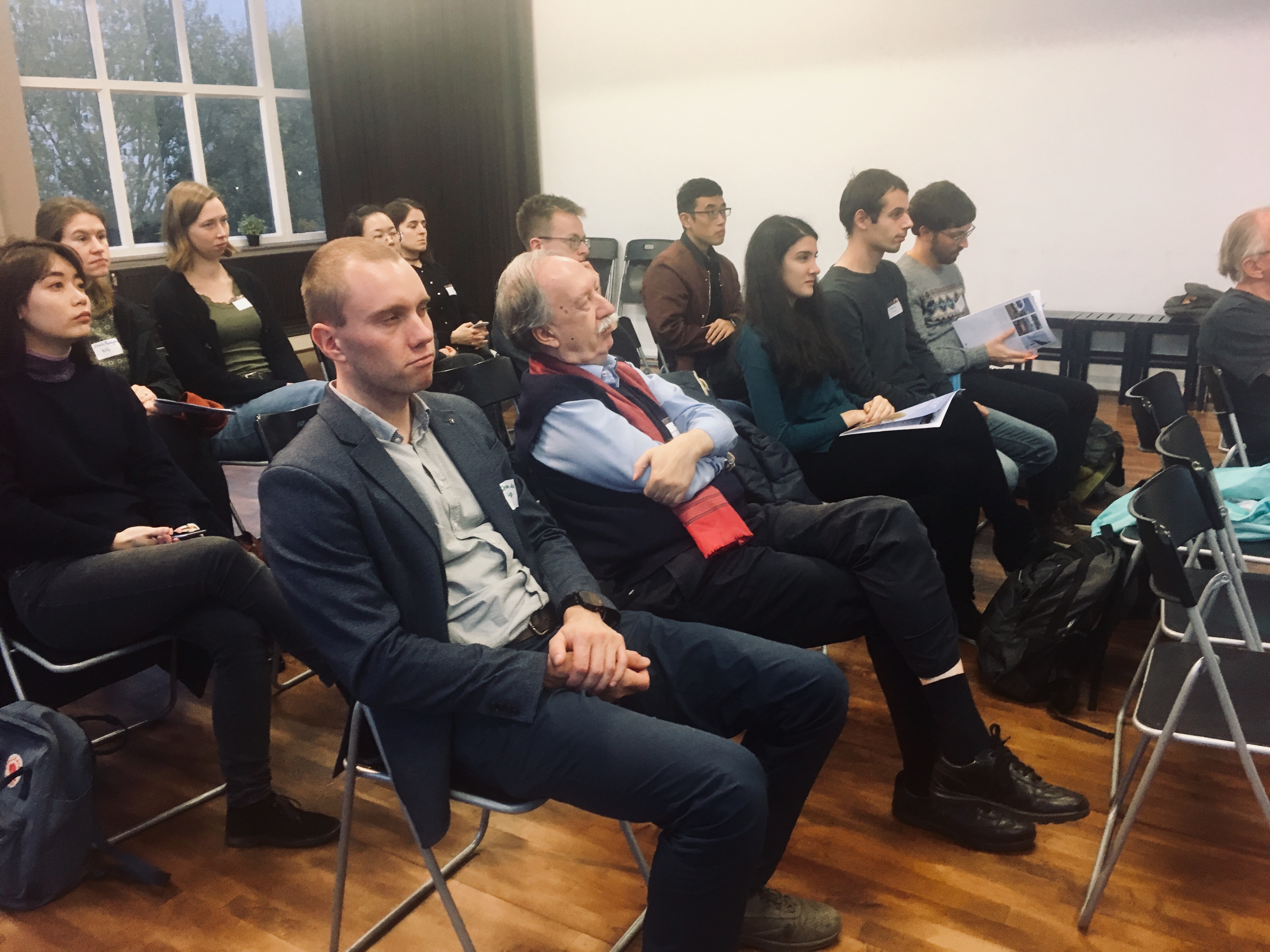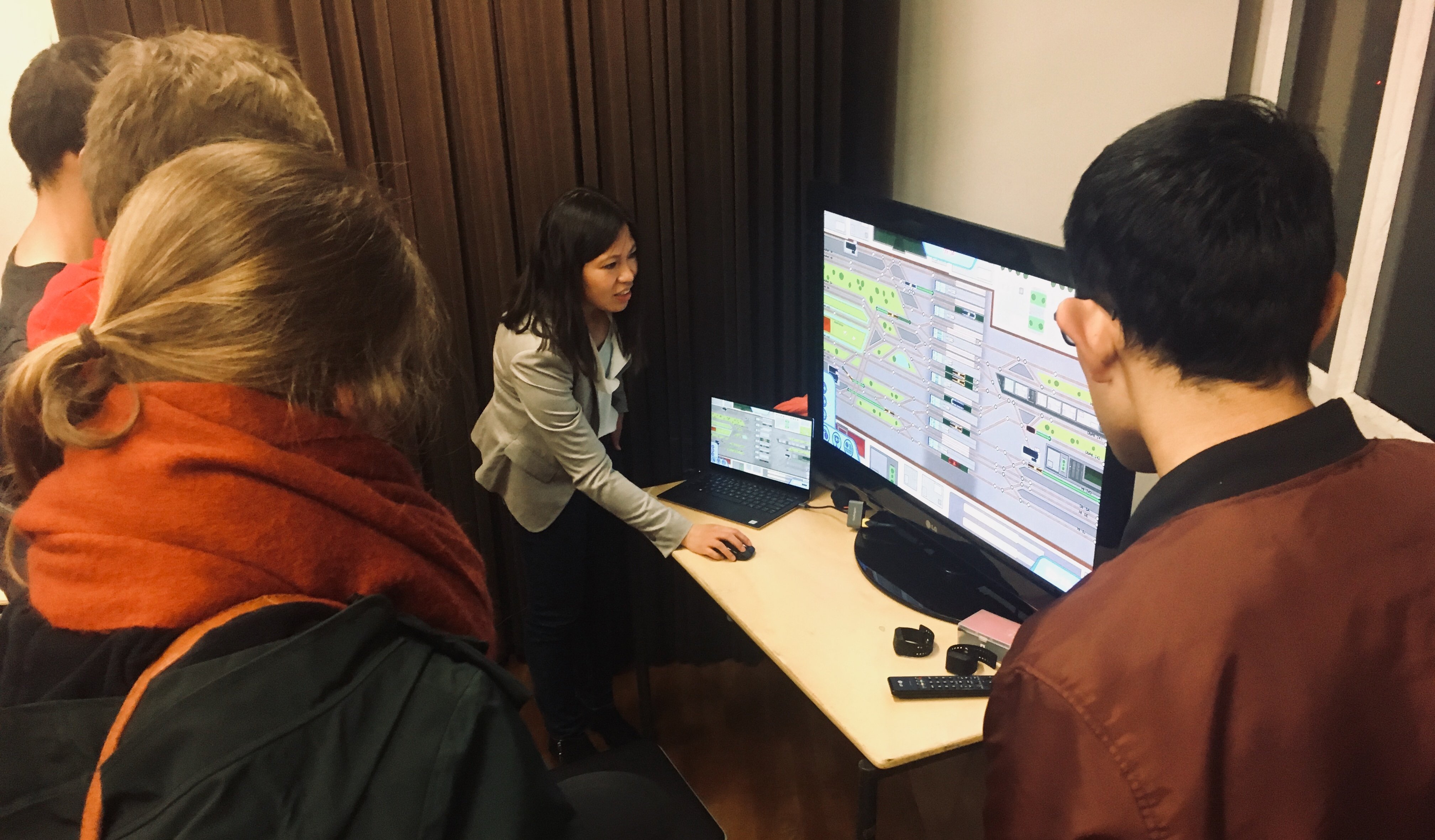Towards railway resilience at Tracks in Transport 2019
During Tracks in Transport 2019, we organized an interactive session ‘Towards railway resilience’ consisting of two parts: a presentation and demonstration of tools used at the Dutch infrastructure manager ProRail and DRTLab at TU Delft.
Railways are a well-known complex socio-technological system including infrastructure, operators, vehicles and passengers. We tackle this challenging multidisciplinary system from two perspectives: human-centered and network-based, in which we study the railway system in terms of its resilience.
There are numerous threats to normal functioning of the railway system, varying from internal failures to weather-related causes. Even more, forecasts show that the number of expected disruptions is set to grow due to climate changes. These disruptions would have an even higher impact in even more dense train traffic network in the future. These factors together create an urge to investigate system behavior first and improve it afterwards.
From a human factors perspective, dispatchers undertake significant levels of stress and workload and our aim is to understand their limits and support them towards better performance, in particular to handling critical situations such as disruptions in the best possible manner. To do so, different wearables and tracking devices are used as tools to collect objective data in real-life and simulated environment, i.e. using human-in-the-loop simulations and gaming simulations.
At the network level, railway resilience is typically presented via “resilience curve” showing system performance during and after disruption. Multiple network aspects/characteristics can be presented such as vulnerability (drop in performance) and recovery (returning to original state).
During discussions, we asked what alternatives are passengers willing to make/accept during disruptions. Participants expressed their readiness to take rerouting options on their way to destination. However, they were more cautious with respect to accepting delays, most of them expressed concerns if their delays become bigger than 25% of their normal travel time. Another interesting discussion arose with the audience on where to invest further to improve resilience. Majority supported the necessity of developing decision-support tools for planning and traffic management. Interestingly, a certain number of participants supported providing a training program to passengers in order to train patience and acceptance of critical situations.
After the presentation, we had two demonstration setups: traffic control and planning department. In the former, we presented a dispatching game developed by ProRail and used in training and to showcase the versatility of dispatching tasks.
In the latter, we showed our tool for assessing vulnerability of railway networks, which has been developed at DRTLab. The tool allows planners to automatically evaluate consequences of random disruptions on passengers, as well as determine the most critical links in the network. Such tool would help to quantify effects, as well as plan response actions more strategically such as distribute emergency teams, allocate substitution bus services.
We thank all participants and hope to see you again soon!
Tracks in Transport 2019: www.tudelft.nl/evenementen/2019/transport-institute/tracks-in-transport-2019/
Nikola Bešinović, TU Delft
Julia Lo, ProRail and TU Delft

